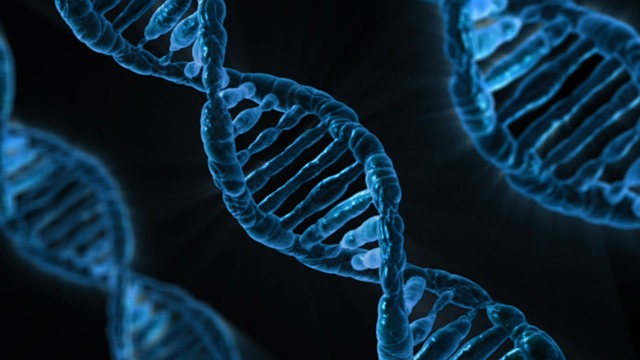Contributed Post
Image: Pixabay
Genetic diseases, such as Huntington’s, Alzheimer’s, Down’s Syndrome and so on have caused unimaginable pain for countless people over the years. While new developments are in the works all the time, everyone in the field of genetic science knows that there are going to be various social, legal, and ethical challenges, particularly for those who live with disabilities. Some of the biggest challenges include the diagnosis and therapy gap, prenatal screening, and confidentiality. Here’s a closer look at these challenges, and what they mean for the future of genetic health care.
Diagnosis/Therapy Gap
Today, the ability to diagnose genetic conditions has grown exponentially. However, there remains a very significant time gap between the modern capacity to make a diagnosis and the capacity to treat the condition in question. Unfortunately, there are still very few effective therapies for genetic conditions currently being used in hospitals and clinics. It’s likely that for the near future, there’ll be far more genetic diseases diagnosed in people than successful treatments. This has opened up a totally new class of patient: the presymptomatic ill. These are people diagnosed with diseases which we have no treatment for as it stands. In a lot of cases, these patients won’t show symptoms of their condition for years, and may never even experience ill effects. However, the psychological and social implications of finding out you have a genetic disease long before it presents any symptoms are obviously severe. For example, if a child is told they have the gene for Huntington’s disease, it may have a profound effect on their long-term life planning, and how their parents will care for them.
Confidentiality
We all understand at least a little about doctor-patient confidentiality. Information about the condition a person may or may not have is highly personal. The individuals in question may or may not want to know all the details about what’s ahead. However, there are various people in your life who can benefit from knowing the details about your genetic condition, such as your employer or your health or life insurer. Though the implications may not be quite as serious, these entities still stand to lose a lot depending on the state of your health. The proportion of companies using genetic tests for employment purposes has grown steadily since the technology became available, and now the practice is more common than ever. While many states have passed laws outlawing genetic discrimination, there’s no denying that this still goes on in the upper echelons of some hugely prominent companies. Until technologies such as genome engineering are perfected and become part of mainstream healthcare, it seems that there’ll always be someone out there who wants to know about your genetic makeup, and an ongoing debate over the rights people have to protect that information. Various polls have shown the majority of the population want to have certain rights in protecting the privacy of their genetic information. Despite this, there’s been no serious moves towards genetic privacy legislation.
Prenatal Screening
Image: Wikimedia
Another area where we’re seeing the massive power of genetic knowledge is prenatal genetic screening. With the tech we have access to today, this kind of testing can be performed either in utero or before implantation. In pre-implantation screening, embryos which have been created in an IVF lab can be tested for various genetic conditions, and then either implanted or disposed of depending on the results, and the wishes of the parents. In post-implantation screening, on the other hand, an unborn fetus can be tested in the womb to see if they have any kind of harmful genes, and the parents can then make a more informed decision whether to follow through with the term or abort the pregnancy. As you can imagine, this kind of tech has seen a lot of opposition from the pro-life lobby. On top of that though, many pro-choice parents are morally opposed to embryo testing, and will therefore refuse any kind of prenatal genetic testing, and even campaign against the practice altogether. This could evolve into a significant obstacle for parents who want to use this tech, and give themselves more time to prepare for raising a child with a serious disability or genetic condition.
What We Call Humanity
For a lot of people, the progress of genetic healthcare has presented a big ethical problem which conflicts with their personal philosophies and beliefs. Although genetic diseases, predispositions and mutations have caused a lot of people a lot of suffering, some believe that the development of this scientific niche will eventually lead to greater discrimination, and a society that looks upon the disabled as burdens rather than people who need to be cared for. Many who have lived with a serious disability will tell you that the very idea of disability is more of a social construct than a clearly defined category. This is something that people at the forefront of genetic science, or those who have simply led easy and healthy lives, will generally disagree with. Opponents point out that discrimination on the basis of gender, race, physical ability and so on is an ugly reality in the world we live in, but that discrimination based on genetic identity is uglier still! The ethical argument runs that people should be judged based on who they are, not what they can do or how likely they are to get a certain disease in the future. Here, we come back to the debate over employers and insurers having access to the details of people’s genetic makeup. As genetic medicine becomes more and more advanced, this ethical debate is sure to come into the media spotlight.
While there are still a lot of uncertainties surrounding the future of genetic medicine, one thing’s for sure: the advances on the horizon are set to lead to a lot of relief for human suffering and the successful treatment of some truly horrific diseases. While we’re still many years away from totally eradicating diseases like Huntington’s and Alzheimer’s, we’re certainly going in the right direction!








